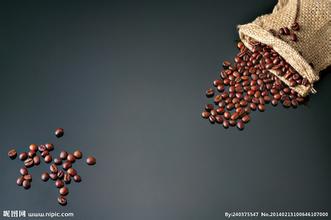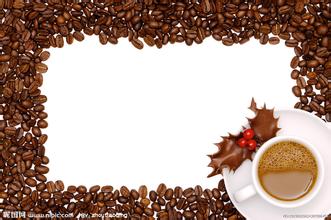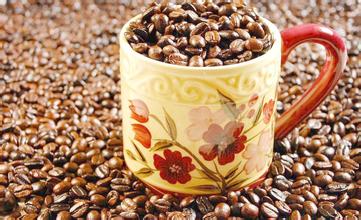Introduction to the characteristics of coffee flavor description of pure and slightly sour Renas Manor in El Salvador
The civil war caused chaos and affected economic development, but ironically allowed the ancient coffee to be preserved, and the situation was so chaotic that coffee producers in El Salvador failed to catch up with the renewal of coffee varieties in Central and South America. The artificial breeding variety of ragogipe (or maragogype) was first bred in 1958 (1954).
Pacamara species is a rare artificial breeding of excellent varieties, blue is better than blue, perfectly inheriting the advantages of the mother plant, both the excellent taste of pacas species, raw bean granules also inherited the large size of malagogipe. The Pacamara species is believed to be the result of the pursuit of large Arabica species. Salvadoran coffee refers to the coffee produced in the small South American country of El Salvador, where coffee is light, aromatic, pure, slightly sour and characterized by excellent balance of flavor. It is a specialty of Central America. With sour, bitter, sweet and other taste characteristics, the best baking degree is moderate, deep.
In the early 1990s, guerrilla warfare greatly damaged the country's national economy, reducing coffee production from 3.5 million bags in the early 1970s to 2.5 million bags in 1990-1991. The eastern part of the country was most affected by guerrilla warfare, and many farmers and workers were forced to leave the manor. The shortage of funds has led to a sharp drop in coffee production, from 1200 kg per hectare in the past to less than 900kg per hectare today.
In addition, Zhengfu imposed an additional 15% tariff on exported coffee in 1986, that is, an additional 15% in addition to the existing 30% tax. Taxes, together with unfavorable exchange rates, greatly reduce the export of coffee and the quality of coffee.
Coffee producing areas in El Salvador:
Like Guatemala and Costa Rica, coffee in El Salvador is graded according to altitude, and the higher the altitude, the better the coffee. The best brand is Pipil, which is what the Aztec-Mayan (Aztec-Mayan) called coffee, which has been recognized by the American Organic Certification Society (OrganicCertifiedlnstituteofAmerica). Another rare coffee is Pacamara, a hybrid of Pacas and Maragogype. The best place to produce the coffee is in western El Salvador, adjacent to SantaAna, which is close to the border with Guatemala. Parkmara coffee is full of grains, but not very fragrant.
Features of Salvadoran coffee:
Coffee from El Salvador is a specialty of Central America, where it is light, fragrant, pure and slightly sour.
Flavor: balanced taste and good texture
Recommended baking method: moderate to deep, with a variety of uses
★: general
Market for Salvadoran coffee:
The best Salvadoran coffee is exported from January to March, and 35% of the extra hard beans are exported to Germany.
In 1990, the government of El Salvador privatized part of the coffee export industry, hoping to increase the income rate of coffee in the export market.

Important Notice :
前街咖啡 FrontStreet Coffee has moved to new addredd:
FrontStreet Coffee Address: 315,Donghua East Road,GuangZhou
Tel:020 38364473
- Prev

Coffee flavor description of slightly sour Santa Barara Manor in Honduras
Honduras has diplomatic relations with Taiwan, and Taiwan has an embassy in Hong. In May 2000, Vice President Arevalo led a special mission to Taiwan to attend Chen Shui-bian's presidential inauguration ceremony; in September, Taiwan Vice President Annette Lu visited Hong. In March 2001, Taiwan Defense Minister Wu Shih-wen visited Hong; in June, Chen Shui-bian visited Hong. In 1993, Hong Joint signed in support of Taiwan's proposal to return to the United Nations; in 1994, it was not co-signed.
- Next

Long aftertaste Rwandan Chimaire Manor Coffee Flavor Description Producing area characteristics Fine coffee beans Introduction
Rwandan coffee is attracting attention for its high-quality washed Arabica beans and is gaining increasing popularity in international markets. Rwanda plans to export 3000 tonnes of coffee this year, further boosting production to meet increasing demand, according to marketing and promotion officer of the Rwanda Coffee Association, Karuretwa. The world's largest coffee.
Related
- Does Rose Summer choose Blue, Green or Red? Detailed explanation of Rose Summer Coffee plots and Classification in Panamanian Jade Manor
- What is the difference between the origin, producing area, processing plant, cooperative and manor of coffee beans?
- How fine does the espresso powder fit? how to grind the espresso?
- Sca coffee roasting degree color card coffee roasting degree 8 roasting color values what do you mean?
- The practice of lattes: how to make lattes at home
- Introduction to Indonesian Fine Coffee beans-- Java Coffee producing area of Indonesian Arabica Coffee
- How much will the flavor of light and medium roasted rose summer be expressed? What baking level is rose summer suitable for?
- Introduction to the characteristics of washing, sun-drying or wet-planing coffee commonly used in Mantenin, Indonesia
- Price characteristics of Arabica Coffee Bean Starbucks introduction to Manning Coffee Bean Taste producing area Variety Manor
- What is the authentic Yega flavor? What are the flavor characteristics of the really excellent Yejasuffi coffee beans?

